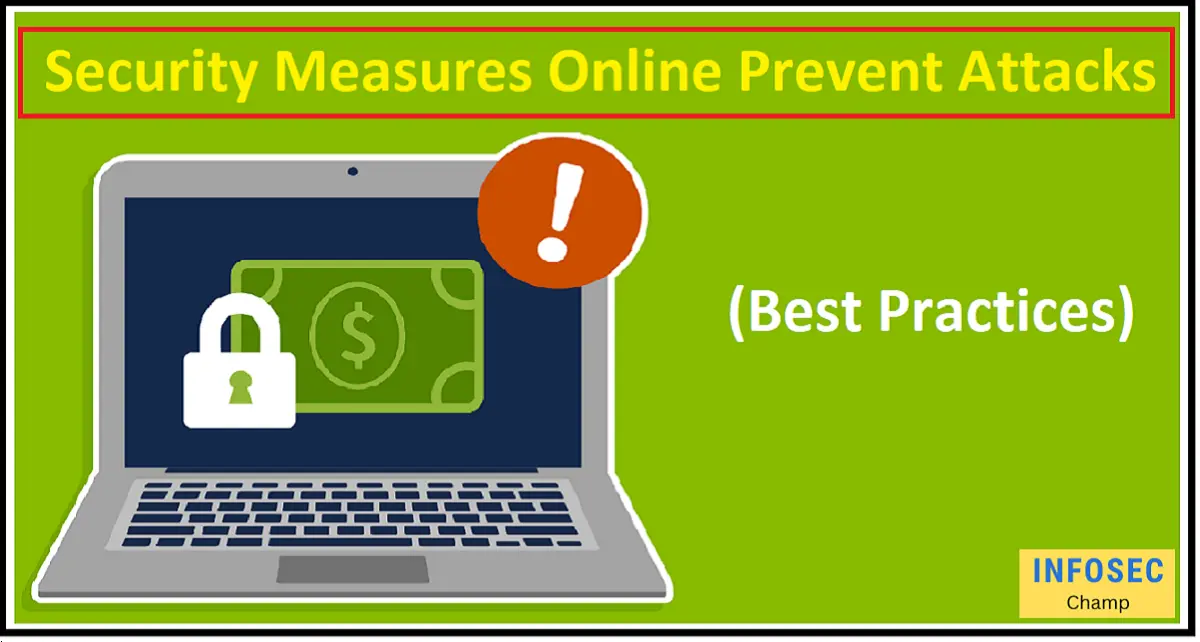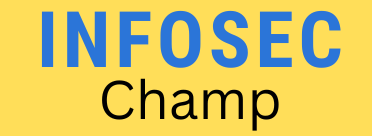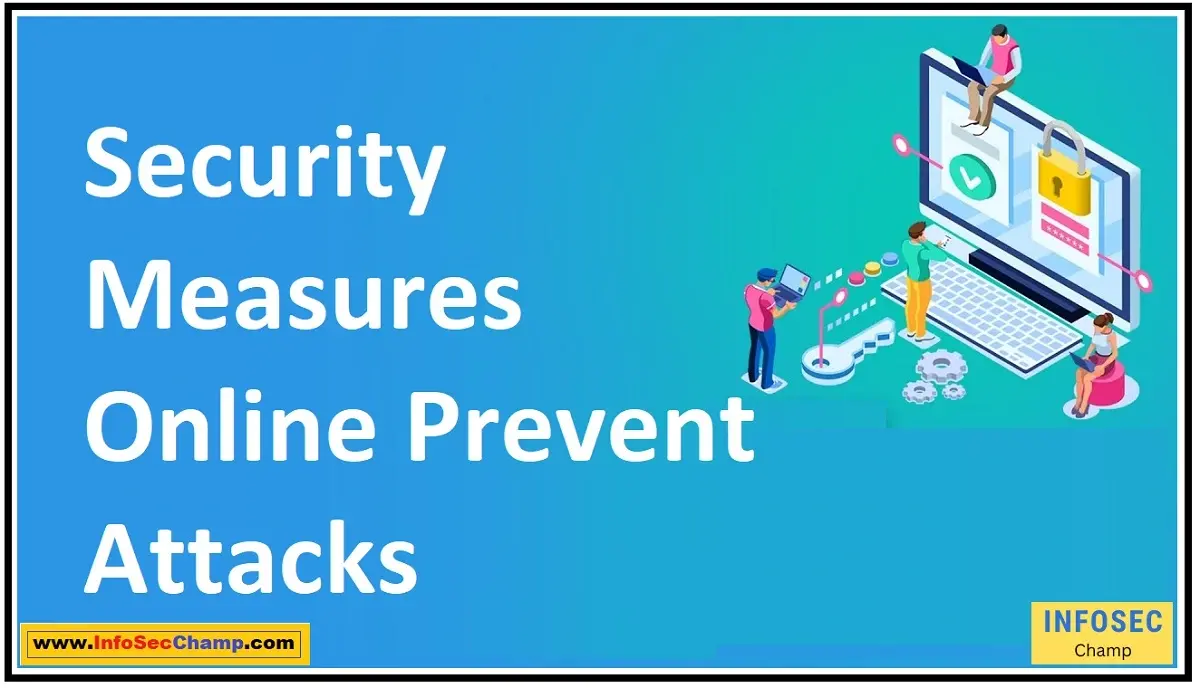Security measures online prevent attacks as the risk of cyberattacks and data breaches continues to rise with more individuals conducting their personal and professional lives online. Therefore, it is crucial to implement security measures online that can prevent attacks on personal information and sensitive data. One of the best security measures online is creating long and complex passwords that include a variety of capital and lowercase letters, digits, and special characters.
- Two-Factor Authentication: By asking users to enter two distinct forms of authentication before they can access their accounts, two-factor authentication adds an extra layer of security.
- Encryption: Encryption is the process of transforming sensitive data into a code that can only be read by authorized people. It is a successful method of preventing cyberattacks on data and personal information.
- Firewall: A firewall is a software or hardware-based security system that monitors and controls incoming and outgoing network traffic. It aids in preventing unwanted access to data and personal information.
- Antivirus and Anti-Malware Software: Computers and other devices are protected from dangerous software like viruses, worms, and Trojan horses by antivirus and anti-malware programs.
- Regular Updates: By addressing known vulnerabilities, routine software, and gadget updates can help avoid cyberattacks.
- Backup and recovery: Regularly backing up crucial data and files can assist prevent data loss in the event of a cyberattack. Data may be efficiently and rapidly restored with the aid of a proper backup and recovery strategy.
- User Education and Training: Informing users of the value of security measures online and instructing them in recommended practices can help avoid assaults on personal data and information.
In summary, putting the aforementioned security measures online can help stop attacks on personal information and data. To ensure the best level of protection, it is crucial to take a holistic strategy for internet security that combines a number of these techniques.
Who should be responsible for implementing security measures online that prevent attacks on personal information and data?
Protecting data and personal information from cyber-attacks requires putting security measures online. It is crucial to entrust responsibility for the implementation of such measures to a skilled individual or team in order to ensure the success of such measures. Thus, who should be in charge of putting security measures online that guard against attacks on data and personal information? Let’s examine some potential choices:
- IT Department: The IT department is frequently in charge of managing a company’s technology infrastructure, including security measures online. They are the ones who can guarantee that the networks and systems are safe and current. They can also keep an eye on the networks and systems for any unusual activity and take the necessary precautions to ward off attacks.
- Cybersecurity Team: Several businesses have a specialized cybersecurity team that handles all facets of cybersecurity, including the implementation of security measures online that guard against attacks on sensitive data. The knowledge of this staff will guarantee that the security measures are efficient and current.
- Data Protection Officer (DPO): Under the General Data Protection Regulation (GDPR), companies are required to appoint a DPO to ensure compliance with data protection regulations. The DPO is in charge of keeping an eye on the company’s data protection procedures, which includes putting security measures online to guard against assaults on data and personal information.
- Chief Information Security Officer (CISO): The CISO is in charge of overseeing the organization’s information security strategy and making sure that the security measures are put into place correctly. They are also in charge of developing rules and processes that direct the application of security measures online that guard against assaults on data and personal information.
In summation, several roles, such as the IT department, cybersecurity team, DPO, or CISO, might be given the duty of establishing security measures online that guard against assaults on sensitive data and personal information. The selection ultimately depends on the organization’s size, finances, and technological infrastructure complexity. Regardless of the job allocated, the person or group in charge of putting security measures online should have the knowledge and resources necessary to guarantee that the measures are efficient and current.
When is the best time to review and update your security measures online to prevent attacks on personal information and data?
In the digital age we live in, it is essential to ensure the security of your personal data. Strong security measures must be in place to safeguard your sensitive data as cyberattacks become more frequent. Regularly assessing and updating security measures is a crucial part of keeping them effective.
When would be the ideal time to do this?
Consider the following important details:
- Regular reviews: Reviewing your security measures online on a regular basis, such as once a year, is advised. But, you should assess your security precautions right away if you have had a security breach or attempted attack.
- Changes in circumstances: When your circumstances change, such as when you switch devices or relocate, it’s crucial to examine and update your security measures. If you’re utilizing public Wi-Fi, which may be more susceptible to attacks, this is especially crucial.
- Software updates: These updates frequently come with security patches and fixes that can aid in preventing assaults on your data and personal information.
- New security threats: It’s critical to update your security measures as new security threats emerge. Keep abreast of the most recent security news and update your security protocols as appropriate.
- Compliance requirements: If you work in a sector with special compliance requirements, such as healthcare or finance, you should assess and upgrade your security measures as often as necessary by these regulations.
Where can you find reliable information on security measures online that prevent attacks on personal information and data?
Protecting personal information and data from internet attacks is essential in today’s environment when cyber dangers are becoming increasingly widespread. With so many resources available online, it can be difficult to evaluate which sources of information are credible and helpful. Here are some locations where you may find trustworthy information on security precautions online that prevent attacks on personal information and data:
- Government Websites: Government websites, such as the Federal Trade Commission (FTC), provide dependable information about security measures online that prevent attacks on personal information and data. These websites offer free resources such as articles, videos, and guides that can help individuals and businesses implement the right security measures to prevent online attacks.
- Cybersecurity Blogs: Cybersecurity blogs such as KrebsOnSecurity and Dark Reading are dependable sources of information about security measures online that prevent assaults on personal information and data. These blogs contain the most recent news on cyber risks, prevention strategies, and insightful articles on cybersecurity best practices.
- Technology News Websites: Technology news websites such as ZDNet and CNET are excellent sources of information about security precautions online that prevent attacks on personal information and data. These websites include articles, reviews, and instructions on various software and applications that can assist individuals and businesses in protecting their data from cyber threats.
- Online Security Forums: Internet security forums, such as Reddit’s cybersecurity subreddit, are excellent sites to discover dependable information on security measures online that prevent assaults on personal information and data. These forums allow users to debate and share their experiences with various security methods and tools, making it easier to evaluate which are effective.
- Security Software Providers: Security Software Suppliers Security software providers such as Norton, McAfee, and Kaspersky provide trustworthy information about security measures online that prevent attacks on personal information and data. These suppliers provide free information such as articles, videos, and guidelines that can assist individuals and businesses in selecting the appropriate security software to prevent internet threats.
Why are security measures online critical in preventing attacks on personal information and data? | Security measures online prevent attacks
In the digital age in which we now reside, it is vital to ensure security measures online to prevent attacks on personal information and data. Since the number of online threats and cyberattacks continues to rise, the protection of personal information and data has become more crucial than ever. These are some reasons why security precautions online are crucial for preventing assaults on personal information and data:
- Protects against identity theft: Security measures online can protect personal information such as social security numbers, financial information, and other sensitive data that can be utilized by cybercriminals.
- Prevents financial losses: Hackers can utilize personal information to get access to bank accounts, credit card information, and other financial data, resulting in major financial losses. Security precautions online can prevent illegal access and financial losses.
- Safeguards confidential information: Businesses and people keep confidential information online, including trade secrets, business strategies, and personal information. Online security measures can secure this information from illegal access, preserving confidentiality.
- Prevents data breaches: Data breaches may be expensive and detrimental to organizations and individuals. Online security measures can prevent data breaches and mitigate their consequences.
- Complies with regulatory requirements: Different industries are regulated, and firms are required to implement particular security measures to safeguard personal and sensitive data. Compliance with these rules can be achieved by installing adequate security measures online.
- Builds trust and reputation: Businesses and individuals who implement robust security measures online are more likely to earn the trust of their customers and clients, which can enhance their reputation and assist to attract more business.

Best 21 Practices for Implementing Security Measures Online to Prevent Attacks | Security measures online prevent attacks
Protecting sensitive information from cyberattacks requires implementing appropriate security measures online. In light of the growing number of cyber dangers, it is crucial to take preventative steps against attacks. Following are the twenty-one best practices for establishing security measures online to prevent attacks:
- Use Strong Passwords: Employ a strong combination of uppercase and lowercase characters, numbers, and symbols in your passwords.
- Two-Factor Authentication: Activate two-factor authentication on all of your accounts to increase their security.
- Install Anti-Virus and Anti-Malware Software: To prevent malware assaults, install anti-virus and anti-malware software on all of your devices.
- Regularly Update Software: To fix security flaws, regularly update your software and operating system.
- Use Virtual Private Network (VPN): Employ a Virtual Private Network (VPN) to secure your internet connection and safeguard your online activities.
- Enable Firewall: To prevent unwanted access, enable the firewall on all of your devices.
- Backup Your Data: Periodically back up your data to an external hard drive or cloud-based storage to protect against data loss in the event of a cyber attack.
- Use Encryption: Protect your sensitive data, including credit card and social security numbers, with encryption.
- Disable Automatic Downloads: To prevent malware attacks, disable automated downloads and installations.
- Avoid Phishing Scams: Be wary of suspicious emails and refrain from clicking on links from unreliable sources.
- Limit Personal Information Sharing: Limit the Personal Information You Provide Online and Be Cautious When Posting Personal Information on Social Media
- Keep Your Wi-Fi Secure: Protect Your Wi-Fi Password-protect your Wi-Fi network and restrict access to authorized users.
- Implement Access Controls: Install access controls to restrict access to sensitive data and information.
- Implement Intrusion Detection and Prevention: Implement intrusion detection and prevention to monitor and prevent illegal access.
- Use Web Filtering: Employ Web Filtering to Prevent Access to Suspicious or Dangerous Websites
- Educate Employees: Teach staff about cyber dangers and recommended practices for internet security.
- Monitor Activity: Monitor activity on your devices and networks to identify and prevent suspicious conduct.
- Conduct Regular Security Audits: Do routine security audits to uncover vulnerabilities and enhance your security procedures.
- Create Incident Response Plan: Develop an incident response strategy to respond swiftly and effectively to a cyber assault.
- Use a Dedicated Computer for Online Banking: To reduce the danger of cyber assaults, use a dedicated computer for online banking and financial transactions.
- Keep Your System Up-to-date: To remain ahead of evolving cyber threats, keep your system up-to-date and adhere to security best practices.
In summary, it is crucial to take security measures online to protect personal and sensitive data from cyber-attacks. By adhering to these 21 recommended practices, you may lower your vulnerability to cyber assaults and enhance your online security.
Conclusion:
The risk of cyberattacks and data breaches is continually rising in the modern digital environment where we spend the majority of our personal and professional life online. To protect sensitive data and personal information from assaults, it is essential to implement proactive security measures online.
Individuals and organizations can protect themselves against cyber dangers by putting in place a number of efficient security measures. Creating strong passwords with a combination of uppercase, lowercase, numerals, and special characters is one of the most fundamental security precautions. Keeping software and operating systems up to date with the most recent security patches is also essential since these upgrades frequently fix flaws that hackers may exploit.
Additionally, utilizing two-factor authentication can offer an additional layer of security to online accounts, making it harder for unauthorized users to access them. Another crucial security step that can prevent sensitive data from being intercepted or stolen is encrypting data while it is in transit and at rest.
Also, it’s critical to exercise caution when opening emails or clicking on links from unidentified or dubious sources as these could be phishing scams or malicious links. Employing good antivirus software and keeping it updated can also aid in preventing the installation of viruses and other harmful programs.
Overall, adopting proactive security measures is crucial for avoiding cyberattacks and data breaches. Individuals and businesses can considerably lower their chance of becoming victims of cybercrime by putting the aforementioned security measures into place and remaining attentive against developing threats.
FAQ:
Security measures to prevent phishing attacks
Implementing security measures such as using anti-phishing software, enabling two-factor authentication, educating employees about phishing scams, and regularly updating software can help prevent phishing attacks.
How to prevent security attacks
Effective security methods include using strong passwords, setting up firewalls, turning on anti-virus and anti-malware software, utilizing a VPN, and routinely upgrading software to fix flaws. It’s crucial to educate staff members on online security best practices and cyber threats.
What are some security precautions online that can help prevent cyber attacks and data breaches?
- Long, intricate passwords with a variety of capital and lowercase letters, digits, and special characters.
- Two-Factor Authentication.
- Encryption.
- Firewall.
- Antivirus and Anti-Malware Software.
- Regular Updates.
- Backup and recovery.
- User Education and Training.
Who should be responsible for implementing security measures online that prevent attacks on personal information and data?
The IT department, cybersecurity team, Data Protection Officer (DPO), or Chief Information Security Officer (CISO) are some of the positions that could be tasked with developing security measures online that protect against attacks on sensitive data and personal information. The choice ultimately comes down to the organization’s size, budget, and technological infrastructure complexity.
When is the best time to review and update your security measures online to prevent attacks on personal information and data?
It is advisable to examine security measures online on a regular basis, such as once a year, and to assess security precautions straight away if there has been a security breach or attempted attack. Changes in the situation, software updates, new security risks, and compliance requirements may also necessitate an immediate evaluation and update of security measures.
Where can you find reliable information on security measures online that prevent attacks on personal information and data?
Some venues where you may get trustworthy information about security precautions online to prevent attacks on personal information and data include government websites, cybersecurity groups, and IT security firms.

